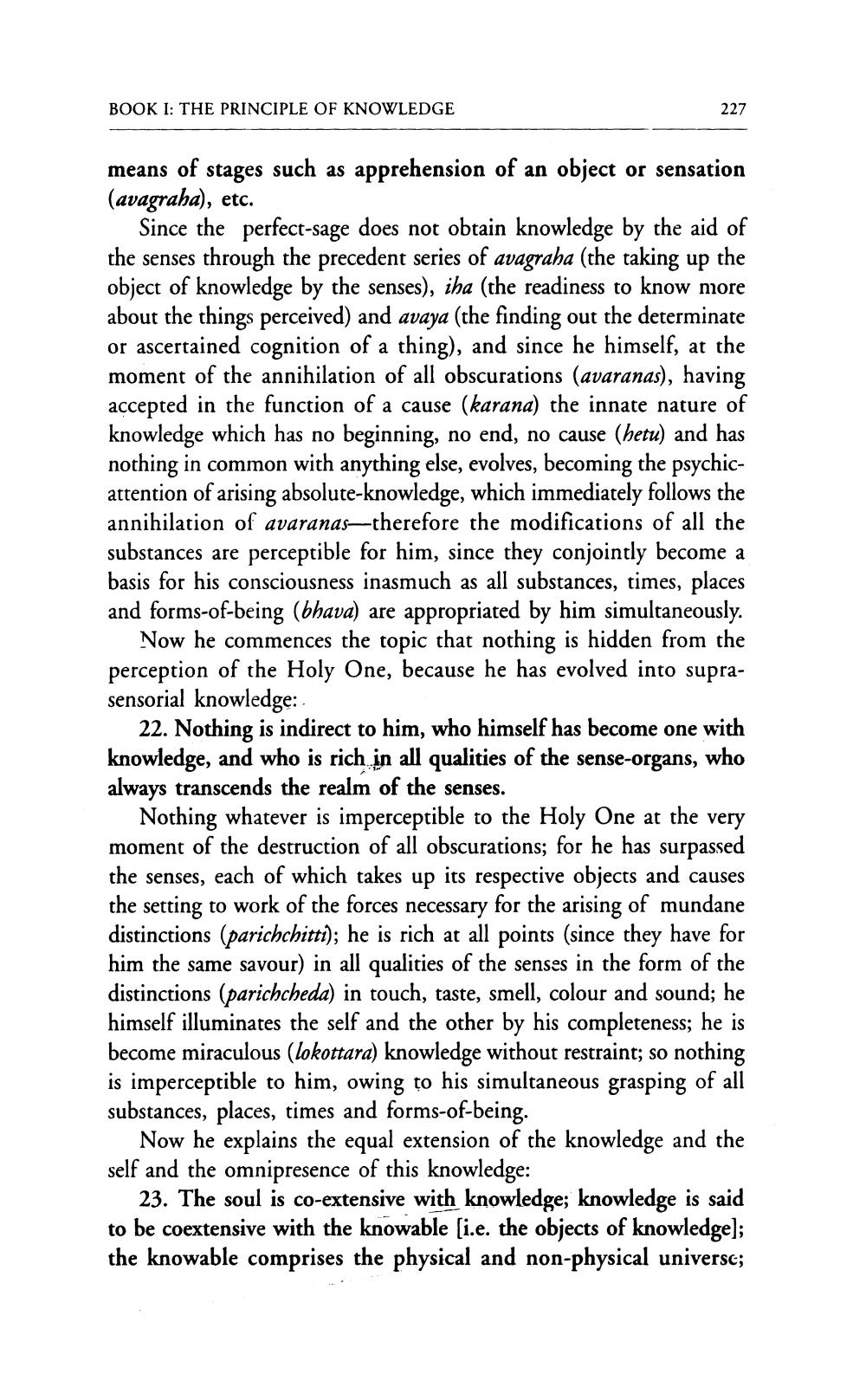________________
BOOK I: THE PRINCIPLE OF KNOWLEDGE
227
means of stages such as apprehension of an object or sensation (avagraha), etc.
Since the perfect-sage does not obtain knowledge by the aid of the senses through the precedent series of avagraha (the taking up the object of knowledge by the senses), iha (the readiness to know more about the things perceived) and avaya (the finding out the determinate or ascertained cognition of a thing), and since he himself, at the moment of the annihilation of all obscurations (avaranas), having accepted in the function of a cause (karana) the innate nature of knowledge which has no beginning, no end, no cause (hetu) and has nothing in common with anything else, evolves, becoming the psychicattention of arising absolute-knowledge, which immediately follows the annihilation of avaranas—therefore the modifications of all the substances are perceptible for him, since they conjointly become a basis for his consciousness inasmuch as all substances, times, places and forms-of-being (bhava) are appropriated by him simultaneously.
Now he commences the topic that nothing is hidden from the perception of the Holy One, because he has evolved into suprasensorial knowledge:
22. Nothing is indirect to him, who himself has become one with knowledge, and who is rich in all qualities of the sense-organs, who always transcends the realm of the senses.
Nothing whatever is imperceptible to the Holy One at the very moment of the destruction of all obscurations; for he has surpassed the senses, each of which takes up its respective objects and causes the setting to work of the forces necessary for the arising of mundane distinctions (parichchitti); he is rich at all points (since they have for him the same savour) in all qualities of the senses in the form of the distinctions (parichcheda) in touch, taste, smell, colour and sound; he himself illuminates the self and the other by his completeness; he is become miraculous (lokottara) knowledge without restraint; so nothing is imperceptible to him, owing to his simultaneous grasping of all substances, places, times and forms-of-being.
Now he explains the equal extension of the knowledge and the self and the omnipresence of this knowledge:
23. The soul is co-extensive with knowledge; knowledge is said to be coextensive with the knowable [i.e. the objects of knowledge); the knowable comprises the physical and non-physical universe;




